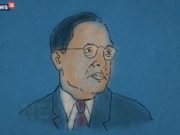
From Leninism to Jinpingism, all forms of the revolutionary ideology have led to the monopoly of State and ‘withering away of Communism’
The 19th National Congress of Chinese Communist Party has established President Xi Jinping as the Supreme leader of the Party, almost at par with Mao Zedong. His thoughts on ‘Socialism with Chinese characteristics for a new era’ were added to the CPC Constitution. This is nothing but ratification of his ideology of State Corporatisation with ultra-nationalist flare. In the process, he has sorted out the all his opponents in the party.
Incidentally, all this is coinciding with the centenary of the first so-called Communist Revolution that took place in Russia, under the leadership of Lenin. In the name of Communism, authoritarianism thrived. Opposition voices were scuffled. All that had led to ‘Glasnost’ and ‘Perestroika’- opening up of polity and economy, ultimately resulting in the end of USSR.
The Communist parties and their Naxal variants in Bharat derive inspiration either from Lenin, Stalin, or Mao. The fact remains that whether Leninism to Jinpingism, all forms of the evolutionary ideology actually thrived on State monopoly and hyper-nationalism, defeating the very idea of ‘Global Communism’. The ‘Withering Away of Communism’ is the norm and monopolisation of the party over State machinery is sold as ‘Class Struggle’. Will the proponents Communism and their fellow-travellers understand and accept this travesty of the ideology.
The party congress sets the agenda for China’s ‘core and developmental interests’ but the question remains how to approach them in future.
Being one of the most seminal political events in China, the just concluded 19th Party Congress of Communist Party of China (CPC), which began with the presentation of the work report by Chinese President Xi Jinping on his “achievements and future endeavors”, also laid out a detailed outline for China’s external and internal engagements.
Characteristic Crackdown New York Times, on October 20, reported that the police and military swarm the streets at all hours, checking documents and questioning passers-by. Political critics have been put behind the bars, placed under surveillance or sent to the countryside. Popular gathering spots like nightclubs have been shuttered and home-sharing services like Airbnb banned. The government in Beijing had blocked WhatsApp messaging app ahead of the party congress. WhatsApp is the only Facebook-owned service still operating in China after it’s social media platform was blocked in 2009.
Contrary to the call of ‘Xi forever’ led by western media and prospects for political reforms, the Congress sealed more command of the party in China and without breaking retirement precedent by keeping anti-corruption czar Wang Qishan out of the promotion.
Interestingly, while the inclusion of President Xi’s name and thought in the party constitution was identified with its equal power and influence to then Chairman Mao. The newly formed CPC Central Committee with its 204 members and only 10 women members found less endorsing the idea of Chinese leader Mao that, “women hold up half of the sky”.
Women out of Power In the new Politburo Standing Committee, there are seven members, all are middle aged men in dark suits. There has never been a female member of the Politburo Standing Committee! It sends out a clear message that the party does not take gender equality seriously. Of the 89.4 million members of the Chinese Communist Party, just under 23 million are women - that's 26 per cent. "The long-standing perception that women's place belongs at home and in the kitchen mean they are not meant to be ambitious," explains Professor Lynette H Ong, Professor of Political Science at University of Toronto. "Even though Mao once famously said, 'Women hold up half the sky', women still have a long way to go in their fights for equal representation," she added.
On the internal front, given the consideration of ‘principal contradiction’ facing China today due to the unbalanced development and people’s needs, party congress set the timeline to achieve “China Dream”, defined as ‘great rejuvenation of the Chinese nation’. President Xi spoke out the desire to realise ‘two centennial goals’ of removing poverty by 2021 and turning China into a “fully developed nation” by 2049, the hundred anniversary of the founding of socialist Peoples Republic.
On the economic front, with rising concerns of an economic slowdown and efforts to build ‘new normal’, President Xi called for relaxing market access for foreign investment, expand access to its services sector and deepen market-oriented reform of its exchange rate and financial system. Considering the challenge of China heading towards “middle-income trap,” the state is more likely to assert its authority over the private business in ‘new ways’, with restrictions on outbound investment and promoting stakes in state-owned industries. President Xi has pushed for strengthening state-owned enterprises, which helped propel China’s export-led growth over the last three decades.
On the political side, the Congress report called to “resolutely oppose” any efforts to undermine party’s leading role in China. Given the rising concerns for social stability, the growth story in China has been largely attributed to ‘party control’ and discipline. On the external front, it underscored the importance of ‘One China policy’, and noted the importance of ‘1992 Consensus’ for Taiwan and with no intention to change or deform from ‘One country, two systems’ model in case of Hong Kong. Making a call to make China a ‘world class military’ by 2050, it also set up the stage for ‘three-step’ military modernisation in China.
Xi embarked upon making China a ‘global power’ with more high-spirited image among nations. This clearly corresponds to Chinese desire for playing more active or even assertive role in global affairs, given the call to take “centre-stage in world politics”, amidst the relative decline of the west. Contrary to the policy of “America First”, Xi reiterated its pledge to tackle climate change.
In relation to India, one important development pertains to the nature of relation and integration between the civilian and the military forces in China’s “new power structure”, given some reports linking China’s western command agility during the Doklam standoff. With China’s soaring military budget and increased drive towards its modernisation the more muscular role for army representing Chinese nationalism on sovereignty issues cannot be overlooked.
For bilateral relations, the reflection of Xi’s influence and power in China has to be fashioned in India’s China policy. On the rising trade deficit between both, China’s call for ‘relax market access’ is a positive development for India.
In sum, the party congress intended to inform the world about China centre-stage and likely leading role in the world politics, but the question remains how to approach ahead.
By Abhishek Pratap Singh
(The writer is a Researcher at Centre for East Asian Studies, JNU, New Delhi)
Courtesy: Organiser












